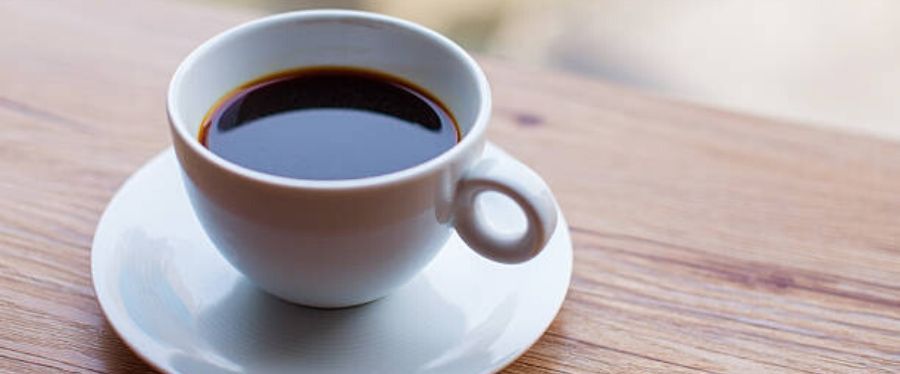Which herbal tea is best for your health? Still Confused? Here’s a list of herbal teas that are really very healthy for you. Aside from water, tea is most popular beverage in the world, and it is practically medicine in a mug. But tea consumption isn’t quite as popular in the United States as compared to other countries.
In States, about 80% of tea is consumed iced, mostly during summer; the U.S. also ranks low in the per capita tea consumption. Much has been written about the health benefits of green tea. But, herbal teas are also great for the hydration and offer protective nutrients.
Technically, herbal tea isn’t tea—meaning it’s not derived from same Camellia sinensis plant that produces the green, white, black, and oolong varieties. Instead, herbal teas are infusions of various non-tea plants, which may include the flowers, herbs, spices, and other roots.

Because most of these plants are caffeine-free, the herbal tea is a flavorful, nutritious option that won’t keep you up at night or elicit an unwanted buzz. In addition to sipping the herbal teas hot or chilled, they can also be used in cooking.
Try herbal tea as base for a cocktail mixer, along with fresh ginger and the mint. You can also use the herbal tea as a liquid in smoothies, oatmeal or overnight oats, soup broth, and marinades; or to steam vegetables and whole grains. And since they’re edible, you can also use loose the herbal teas as a garnish on salads or sweet treats. Here are five of my favorite types of the herbal tea, including some information about their benefits.
1. Chamomile Tea:
In the folk medicine, chamomile tea has long been used as a calming beverage or a sleep aid. Chamomile tea is primarily made from dried chamomile flowers. This tea has been shown to help the people fall asleep faster.
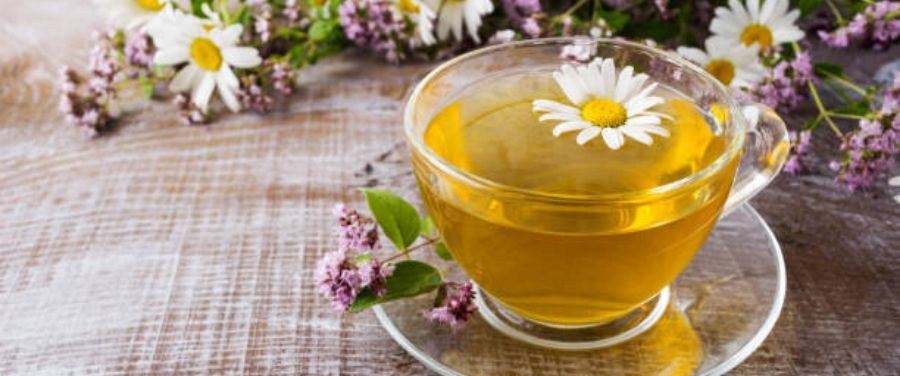
Chamomile also has some anti-inflammatory properties, and has been shown to help reduce severity of the menstrual cramps. The flower is also tied to blood sugar regulation and the bone density protection.
2. Peppermint Tea:
While fresh peppermint is a fantastic addition to the tea, it can also be steeped to make “tea.” While much of research has been done with the mint’s extracts, tea may offer the similar benefits. These include the improved power and time to exhaustion in athletes, as well as enhanced breathing function.
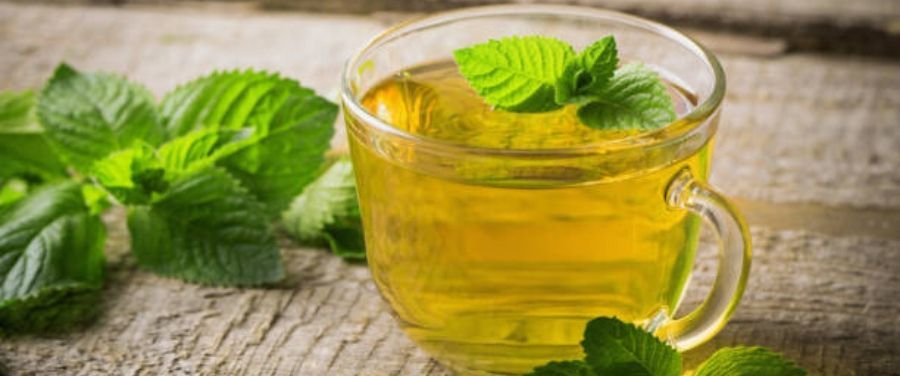
Scientists believe these effects could be attributed to a relaxation of bronchial muscles, an increase in the brain oxygen levels, and a decrease in the blood compounds associated with fatigue. Those same muscle-relaxing effects allow the peppermint to help soothe and ease indigestion. Simply smelling mint has also been shown to reduce fatigue, increase alertness, curb anxiety and enhance memory.
3. Rooibos or Red Tea:
It is also known as red tea or red bush tea. Rooibos is made from the leaves of a shrub native to the South Africa. This tea is loaded with the antioxidants and anti-inflammatory compounds. Red tea has been tied to bone health protection, obesity prevention and improved digestive health.
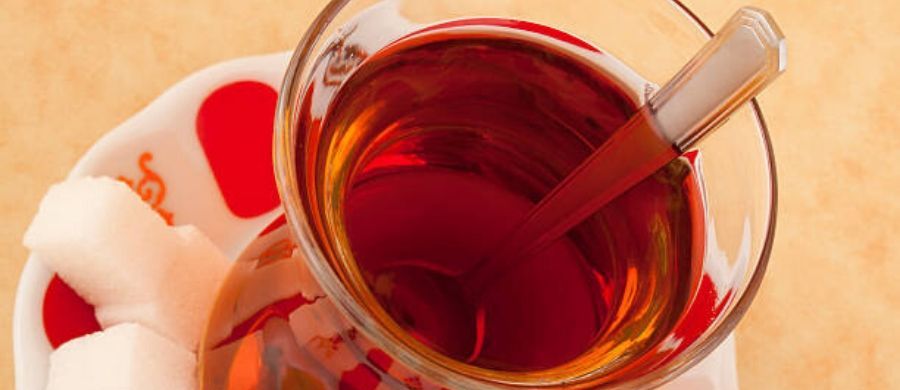
Rooibos also provides the small amounts of minerals, including iron, copper, manganese, calcium, potassium, zinc, and magnesium.
4. Hibiscus Tea:
Made from the parts of hibiscus plant, this tea has a tart flavor that’s somewhat similar to cranberries. Another antioxidant rich source, the hibiscus has been shown to boost “good” HDL levels and lower ‘bad” LDL cholesterol and triglycerides in people with diabetes.
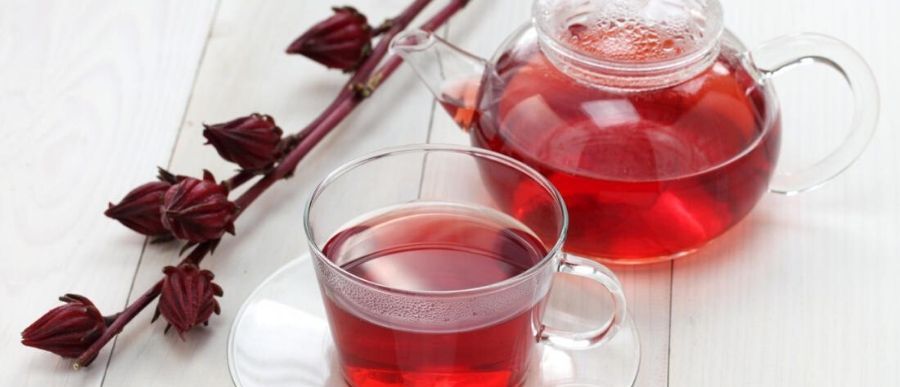
Hibiscus also helps to protect the liver and promote weight loss. In one recent study, overweight adults given the hibiscus extract experienced reductions in body weight, body mass index, body fat and hip-to-waist ratio as compared to a placebo. Hibiscus also supports the immunity through its anti-bacterial potency.
5. Ginger Tea:
Ginger has long been touted as a remedy for morning sickness, nausea and motion sickness. Sipping ginger tea can offer similar benefits, as well as other potential perks: The root is a potent inflammation fighter, shown to help lessen muscle pain after the intense exercise, and reduce pain in people with the osteoarthritis.
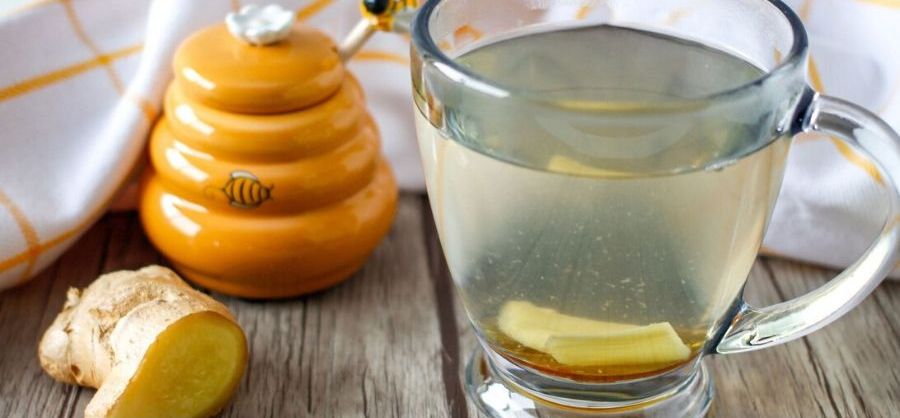
Ginger also helps to ease period pain and support immunity, in addition to protecting against the cancer, type 2 diabetes and heart disease.
6. Echinacea Tea:
Echinacea tea is an extremely popular remedy that is said to prevent and shorten the common cold. Evidence has shown that echinacea tea may help to boost the immune system, which could help the body to fight off infections. Many studies shows that echinacea can shorten the duration of common cold, lessen the severity of its symptoms.
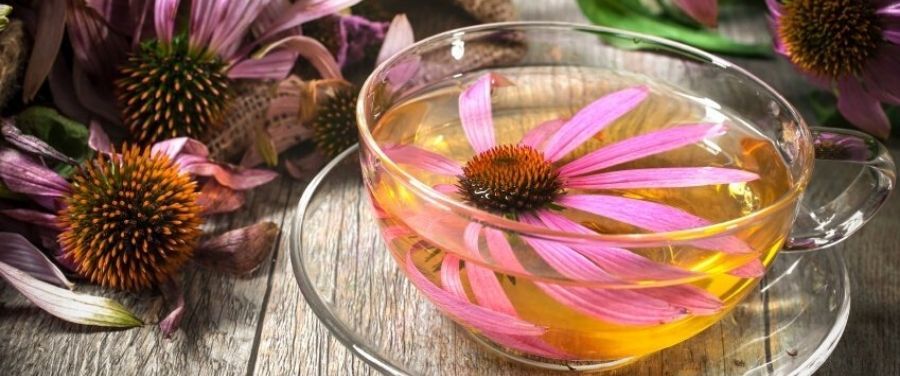
At the very least, this warm herbal tea may help to soothe your sore throat or clear up your stuffy nose if you do feel a cold coming on.
RELATED ARTICLES:
